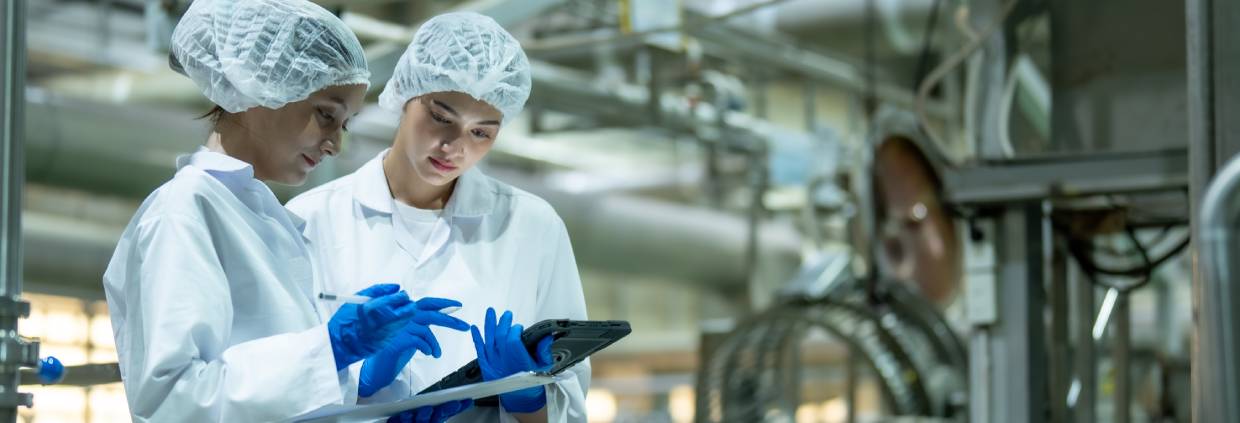As demand rises for sustainable and biologically derived products, microbial fermentation is becoming a cornerstone of industrial manufacturing across a range of industries.
Its applications span the production of fats and lipids for food, cosmetics, and surfactants, as well as the synthesis of biotics, enzymes, and novel milk proteins, among other use cases. With demand for such products increasing, there is a growing need for scalable, efficient fermentation processes to produce them.
However, the path from lab success to industrial-scale manufacturing is rarely straightforward. Companies developing fermentation-based products face significant challenges in scaling processes while maintaining consistency, cost-efficiency, and quality. Optimizing fermentation conditions, refining downstream recovery, and ensuring regulatory compliance all require deep technical expertise and know-how.
That is why many innovators partner with experienced contract development and manufacturing organizations (CDMOs), such as ScaleUp Bio, which combine purpose-built infrastructure with multidisciplinary process development capabilities required to optimize microbial fermentation workflows. Partnering with a CDMO on manufacturing science allows innovators to focus on further creating and validating their IP, without the need to allocate resources to capital infrastructure.
Bridging innovation to scalable manufacturing
At the heart of successful partnerships is a shared commitment to technical excellence. When companies bring a candidate asset to ScaleUp Bio, the first step is a thorough process assessment. This review covers current fermentation methods, strain performance, and product use case.
From there, efforts shift toward optimizing yield, recovery, and reproducibility. Challenges that emerge at scale – such as foaming, mass transfer limits, or inconsistent downstream recovery – are addressed through a structured approach. Key process parameters are identified, data models are built, and improvements are piloted at increasing scales.
Execution is iterative and collaborative. ScaleUp Bio’s process teams work hand-in-hand with the innovator with their product knowledge to troubleshoot, adapt, and refine the process – ultimately, building towards commercial readiness. Success in fermentation manufacturing is rarely linear; it requires the ability to adapt and refine based on real-time insights from both teams. By building the process in this way, innovators are better positioned to navigate the transition from early-stage development to commercial readiness with greater confidence and control.
Yield optimization
Most innovators are deeply familiar with the functionality and value of their asset, but often lack the engineering science required to scale up production efficiently. Yield becomes especially important as companies approach later technology readiness level (TRL) stages, where commercial metrics like unit cost, production volume, and margin come under scrutiny.
ScaleUp Bio’s approach involves assessing the client’s current process to identify performance gaps, particularly in fermentation and downstream recovery. By collecting detailed process parameters, modeling and benchmarking against desired outputs, the team designs a tailored technical proposal that maps out objectives and deliverables to enhance productivity. Through iterative process development, close technical collaboration, and data-driven optimization across multiple production runs, the company supports clients in achieving significant improvements in yield.
These improvements are not only critical for improving cost but also essential for preparing assets for regulatory submissions, consumer testing, or early commercial rollout. In this way, yield optimization becomes both a technical and strategic lever for clients looking to scale efficiently while maintaining a strong position in competitive, cost-sensitive markets.
Case study #1: Scaling microencapsulated oil production in Europe
ScaleUp Bio worked with a European innovator to scale up the production of sustainable microencapsulated oil and fat to pilot-industrial batch levels. The goal: improve yield and secure sufficient yield for regulatory approval and market launch. ScaleUp Bio collaborated with the company to progress from pilot-scale to reach the 10,000L scale mark.
ScaleUp Bio optimized fermentation pulse dosing and calibrated initial batch sizing to maximize productivity. Downstream, the team refined centrifugation parameters and wash methods, adjusted pasteurization and spray-drying conditions to minimize product loss without compromising quality.
Over the course of four runs, yield improved by 200%, with a 184% increase in final product volume between the first and fourth batches. This consistent improvement enabled the innovator to progress toward commercial deployment with confidence.
Case study #2: Reducing unit cost by 88%
In a separate engagement, ScaleUp Bio worked with an Asia Pacific innovator to reduce their unit economics by 88% within two pilot-industrial runs, bringing the production cost to below US $400/kg.
The objective was clear: demonstrate a viable cost structure at scale to support future commercial pricing. By systematically reviewing fermentation and downstream steps, the two teams were able to identify immediate cost-saving opportunities, with further optimization ongoing.
The importance of infrastructure
Core to ScaleUp Bio’s offering is a GMP-compliant, food-grade facility tailored for fermentation. The site is FDA-registered and licensed by the Singapore Food Agency, enabling the production of material suitable for human consumption and regulatory submissions.
The site operates under a comprehensive HACCP-based system, supported by strong Prerequisite Programs (PRPs) such as sanitation, hygiene zoning, pest control, and environmental monitoring. These foundational systems are reinforced by Operational Prerequisite Programs (OPRPs) embedded into validated processes, and Good Documentation Practices (GDP) are enforced to ensure traceability, compliance, and audit readiness.
For innovators, this infrastructure and system control are not just a compliance box – it is a gateway to commercial feasibility. It allows for the generation of pilot or industrial batches that meet food-grade and regulatory standards, providing a clear bridge from R&D to market readiness.
As the fermentation economy grows, companies need more than lab success – they need a partner that can navigate scale, cost and compliance. With its combination of infrastructure, process expertise, and regulatory readiness, ScaleUp Bio helps innovators move from concept to commercialization with speed, reliability, and impact.


